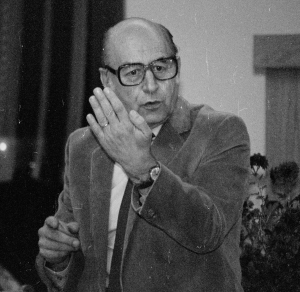You thought “Succession” was hilarious? The story of minor-league talents battling it out to take over the family business from a toxic patriarch?
“The Death of Stalin” is a terrific movie about the end of the life of quite possibly the worst dictator the world has ever known. It is reported to be one of Barack Obama’s favorite films. It was banned in Russia, which, of course, is hilarious. It was also criticized by some for historical inaccuracies, which, of course, is also rather absurd: it is a comedy. The comedy lies in the kind of chaos created when an authoritarian, melomaniac, paranoid leader dies without leaving a clear line of succession.
It drives me insane to read, in IMDB, an explanation of why they made the “strange” decision to have the actors speak in plain English, instead with an amusing Russian accent! The assumption is that they should have had them speak with Russian accents, which is actually a really, really strange idea. But these are Russians talking to each other in Russia. Do viewers think that Russians or Germans or French people speak to each other with funny accents?
If you say, that’s what people expect, it is only because they have been trained to expect that moronic approach, the way they have been trained to believe that bullets arrive at their target simultaneously with the sound of the gun being fired: they have been trained by early Westerns which chose not to allow audiences to learn the truth.
The best solution is for them to speak in their real, native tongue, with subtitles, but having them speak fluent English is a good option, and far, far, better than the stupid accent idea.
Stalin
Estimates vary, as they will, but Stalin was probably singularly responsible for the deaths of millions of people.
Key players:
Lavrently Beria
- Became head of the NKVD in November 1938.
- Proposed and master-minded the Katyn Massacre in March 1940.
- just before Stalin’s funeral, he had the army units in Moscow replaced with his own NKVD units and cancelled all the trains coming to Moscow.
Georgy Malenkov (Jeffrey Tambor)
- Closely associated with Vladimir Lenin.
- Ran Soviet Missile Program during World War II.
- Discredited Georgy Zhukov to curry favor with Stalin who was jealous.
- Briefly succeeded Stalin as Premiere and “first among equals” (March 5, 1953)
- Eventually sidelined by Nikita Khrushchev. Attempted a palace coup against Khrushchev in 1957 and expelled from the Presidium and exiled to Kazakhstan.
Vyacheslav Molotov (Michael Palin)
- Negotiated the Molotov-Ribbentrop Pact with Germany in 1941.
- Part of the Central Committee meeting after Stalin’s Death to plot things out.
- his wife, Polina, had been arrested by Beria, with Molotov’s passive consent. Three days after Stalin’s death, Beria did indeed release Polina to Molotov, presumably to cultivate support in the ongoing power struggle at the Politburo.
Nicolai Bulganin
- Part of the the Central Committee meeting after Stalin’s Death.
Lazar Kaganovich
- Part of the the Central Committee meeting after Stalin’s Death.
Anastas Mikoyan
- Part of the the Central Committee meeting after Stalin’s Death.
Nikita Khrushchev
- Brought back from Ukraine to Moscow in 1949
- Regarded by British Diplomats as mouthy and misinformed and inarticulate. They were far more impressed b y Malenkov, though the movie portrays him as a bit of a dunce.
Vasily Stalin
- Stalin’s son
- Called to his father’s side after his cerebral hemorrhage, he was drunk and angry, shouting at the doctors
Svetlana Stalin
- Stalin’s daughter. Reported that her father’s death was “difficult and terrible”.
- Beria had been very friendly with her as a little girl, like an Uncle
Maria Yudina.
- famous pianist who played piano at reception at Stalin’s lying in state
- 9 years before his death (unlike in the movie which places the event the very night of) she had played the concert shown in the movie, and had been roused out of bed to repeat the concert for a recording
- Wrote a note to Stalin which she placed in the record sleeve saying: “I will pray for you day and night and ask the Lord to forgive your great sins before the people and the country.” She was not arrested. She died in 1970.
Georgy Zhukov (died June 1974)
- got along well with Eisenhower; tried to supply food to Berlin after war
- however, did nothing to stop the brutal rapes and pillaging by Russian soldiers
- unlike everyone else around Stalin, he refused to kowtow; openly dismissive of Stalin, and openly contradicted him at times
- did loot Berlin; was caught and made an abject apology
- Brilliant Soviet military general who guided the stand-off in Stalingrad.
- his arrest of Beria did occur, but 3 months after the funeral (June 1953), and Beria did get a trial and was executed in December 1953.
- supported Khrushchev’s bid for power, but, by 1957 lost favor and was forced to retire
- never returned to a position of influence after that
- some historians believe he exaggerated his role in WW II.
Normal Text

